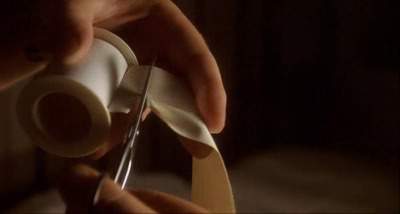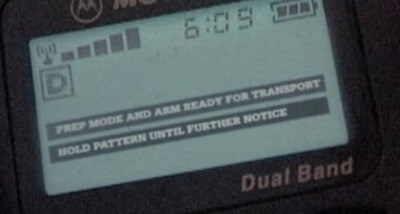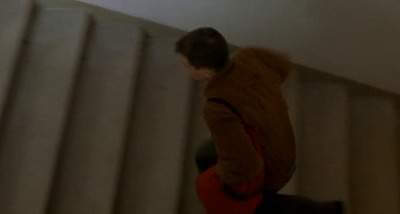Continue Sound Effect in Next Scene Screenply
The question of how to use sound is one I had years ago when writing my first screenplay. The use of it is undeniably useful in a film, but some of it can be used in screenplays for the same reason in production, to tell the story.
How to write sound effects in a screenplay? You write sound effects in a screenplay by capitalizing the sound you're making in the action line of the script. For example "Jackie SLAMS the door shut." or "The tires SCREECHES across the street."
Sounds to help visualize the story, but there are unsaid guidelines associated with writing sound effects. For instance, did you know there are two ways to write a sound effect in a script? One way is to capitalize the effect as shown above. The second way is to type the letters "SFX:" representing sound effects.
SFX: Phone Rings
This way of writing, you type as a stand-alone line. Like if it were a separate action line. Both methods are designed to stand out to the reader with some form of emphasis.
When to use sound effects in a screenplay?
The purpose of sound effects in a screenplay is to illustrate what's happening in the story to the reader. The reader can't see in your head. So this is how you can make those dramatic sounds in your next thriller or action screenplay.
Use sound effects when things aren't obvious to the reader of what you're conveying.
For example:
BOBBY
You're crazy, I'm not getting in there it's too cold.
Bobby walks towards the car…SPLASH…He turns back around.
SARAH
Are you so scared?
Without the "SPASH" you have no idea what Sarah did. This reveals how much of a daredevil Sarah is. It also shortens the action line. Read the same three lines without the sound effect.
BOBBY
Your crazy Sarah I'm not getting in there it's too cold.
Bobby walks towards the car. Sarah turns around takes off her top and jumps in the creek. He turns back around.
SARAH
Are you so scared?
See not the same effect. One word can dramatically improve the surprise to the reader and Bobby.
When not to use sound effects in a screenplay?
1 Don't use it for Character Voices. If a character is yelling, you don't need to put that in the action line as a sound effect.
Example:
"Sarah SCREAMS to the top of her lungs."
This is wrong Instead, save character voices for the parenthetical lines underneath their name.
SARAH
(Screams)
Bobby it hurts.
2Use Them Wisely. Don't go crazy with sound effects they are for dramatic effect. One or two per action line is excellent. When you move towards the place when your script looks like all caps you might have a problem, some writers can get away with this because of their reputation. For example, read Quintin Tarantino's, Kill Bill. The action scenes are littered.
Example of what not to do
The car's tires HOWL around the corner… the engine BEATING past its breakpoint… then CRASHES into a car on the other end… EXPLODING into the water ROCKETING the door handle towards the sky.
Do this instead.
The car's tires HOWL around the corner… the engine overheats past its breakpoint… then CRASHES into a car on the other end… EXPLODING into the water propelling the door handle towards the sky.
By including too many sound effects you take away the effect of having them in the first place.
3 Capitalize the sound, not the object.
For example
"The DOORBELL rings" is wrong.
"the doorbell RINGS" is correct.
"DING DONG" Also correct.
Is up to your creativity.
How to write off-screen sound in a script?
It's called a pre-lap. It's when any sound for the next scene starts before we leave the current one. It's more of a way to transition in the script.
Example:
EVAN
Can you even imagine the possibilities?
PRE-LAP: Ding dong
EXT. RONNIE'S HOUSE – NIGHT
Evan and Sarah stand in front of the door.
EVAN (CONT'D) Just think about it, Sarah.
Examples of sound effects used from Screenplays
Oliver Stone in the Midnight Express
We MOVE to HANDS, TIGHT – drawing out a strip of adhesive tape, SCISSORS move in TIGHT…SNIP!

The Bourne Identity
And then, HIS E-PHONE PAGER starts pulsing — hum — hum —

INT. U.S. CONSULATE BACK STAIRWAY — DAY
BOURNE climbing fast — two — three — stairs at a time — racing up as a SECURITY ALARM STARTS SCREAMING — bleet — bleet — bleet —

What type of scripts uses sound effects more?
The scripts that will naturally overuse sound effects are horror, thriller, and action films and this is ok. The only way you will get into any trouble for this is if you use them wrong.
No one wants to see a bunch of KABOOMS! Every single line of a script will be annoying even if it's part of the story. So I suggest you write out "the building exploded." Doing this will keep your significant moments dominant and your minor moments minor.
Why use sound effects at all?
A screenwriter can go a whole 90-page screenplay with zero sound effects. Its been done before to some extent. Sound effects are for dramatic effect. When your mother read you a bedtime story, it was always more entertaining when she made sound effects. It put you in the story as opposed to just listening to it.
The Second point as seen in the examples above is it shortens sentences giving readers more information faster. Explaining something can take a reader out of the story sooner than anything else. By using sound effects, you're pushing the story forward quicker.
Think of it as editing a film. Instead of having your characters run out of the building as the timer goes off creating an explosion that topples the building. Just right KABOOM the building falls.
In conclusion, now you know everything about writing sound effects in scripts.
Now Its time to hear from you:
Did I miss anything in this script?
Which techniques are you planning to use and why?
Whatever your answer is let's hear it in the comments below.
Happy writing.
Source: https://freshmenscreenplay.com/how-to-write-sound-effects-in-a-screenplay/
0 Response to "Continue Sound Effect in Next Scene Screenply"
Post a Comment